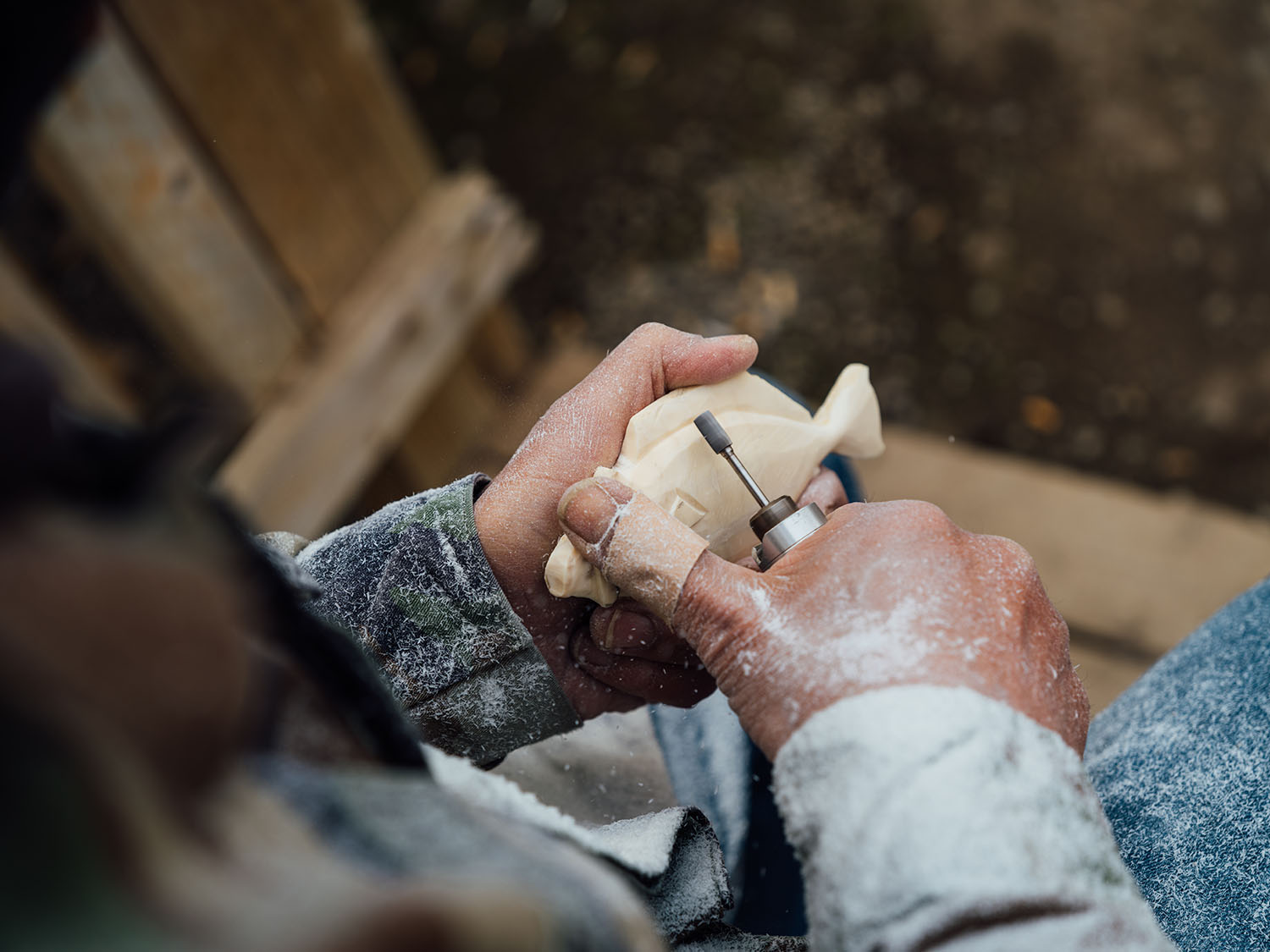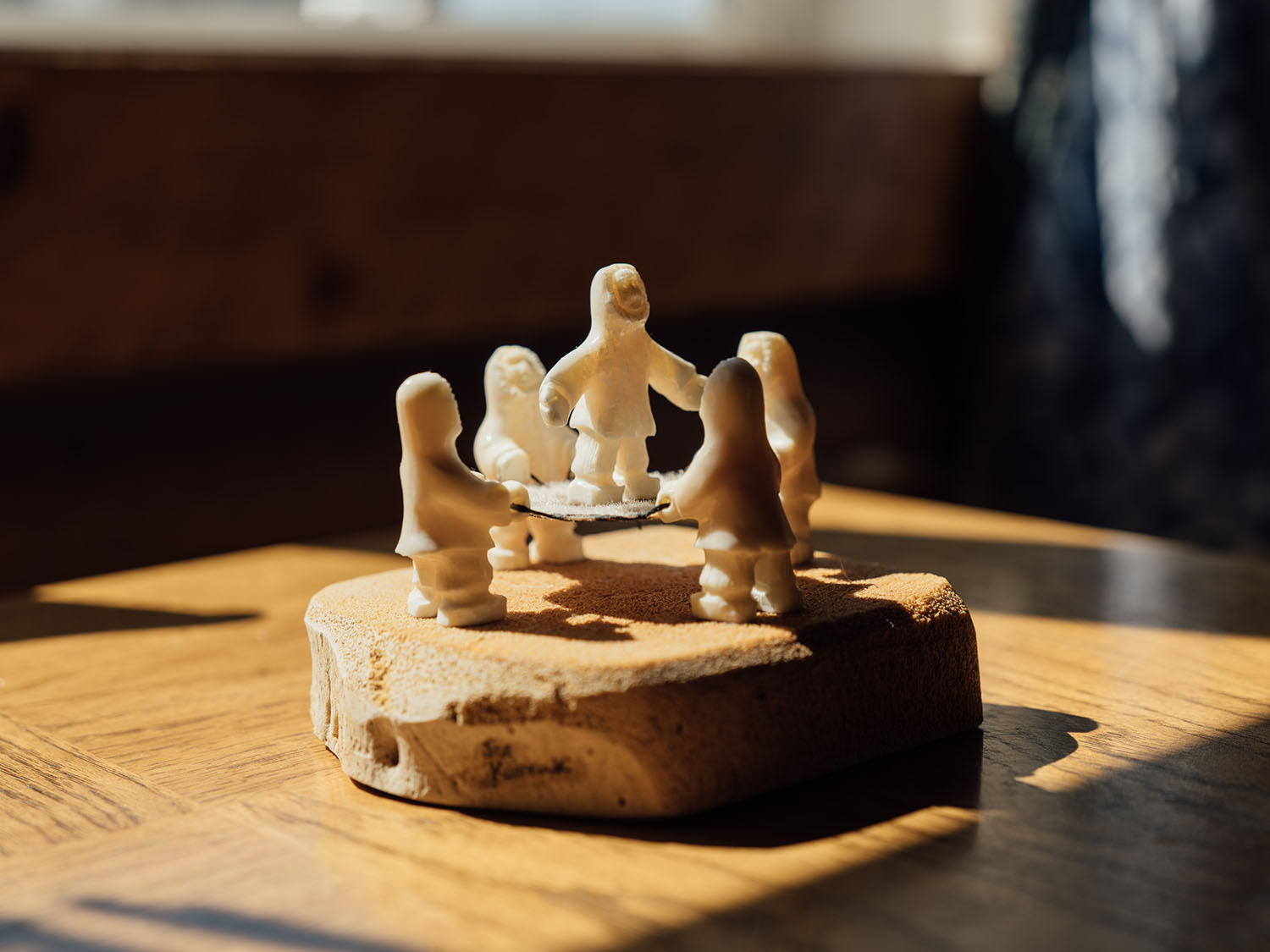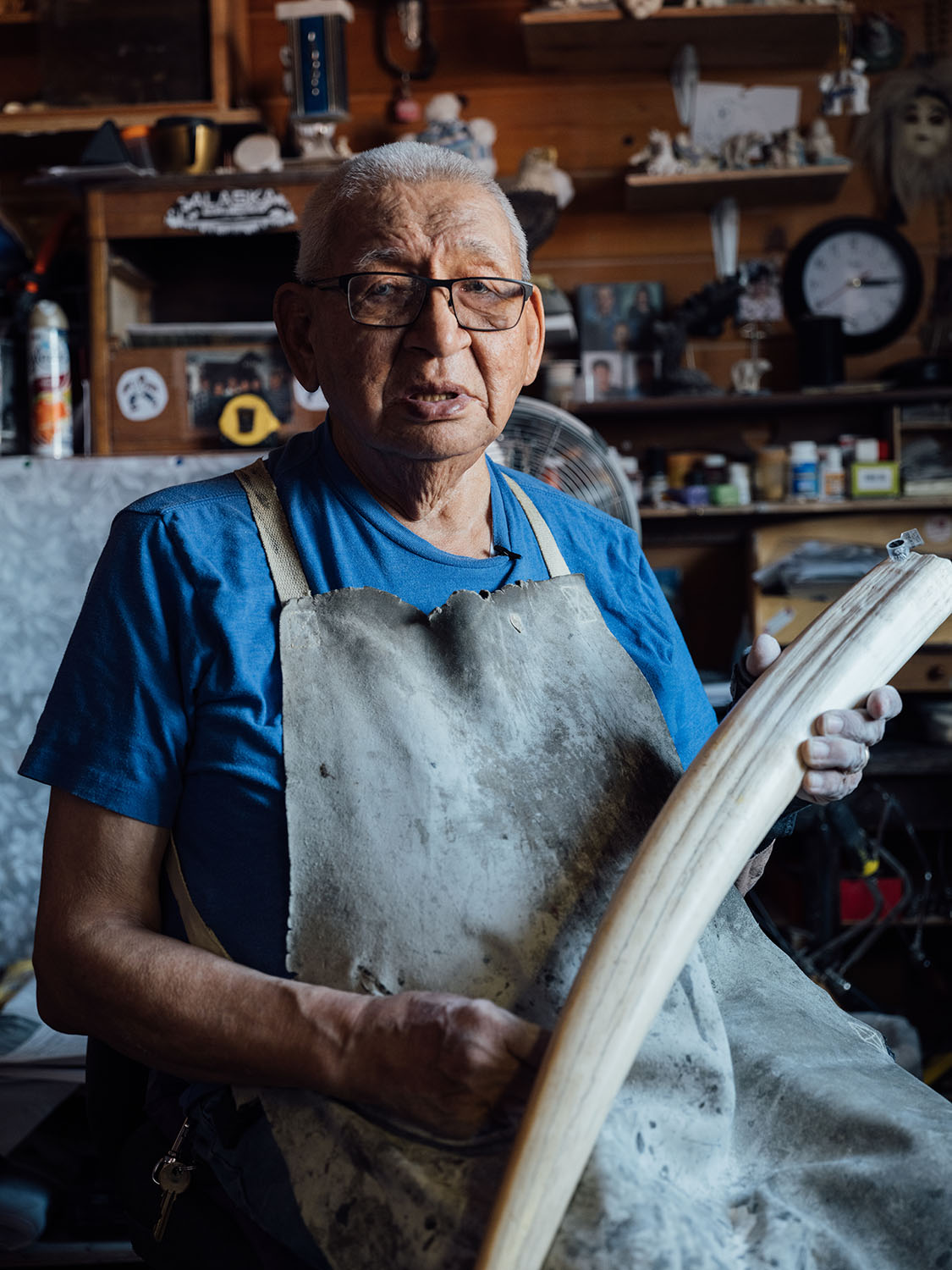Current Laws
Pacific walrus are protected by the Marine Mammals Protection Act of 1972. This federal law allows for Alaska Natives in coastal communities to harvest walrus for subsistence purposes.

In a subsistence hunt, the animal’s meat and blubber is used to provide basic food and nutritional needs of the community. As part of the Alaska Native people’s cultural value of no waste, the inedible parts of the walrus are used to make boats, tools, clothing, spiritual items and artwork.
According to the federal law, walrus ivory offered for sale may only be carved by Alaska Native artists.
State Bans
In 2018, after aggressive movement worldwide to halt the poaching of African elephants for their ivory, U.S. states began to pass laws that banned the sale of all ivory, and did not distinguish elephant ivory and walrus ivory.
State governments may not be familiar with the Marine Mammal Protection Act of 1972 and its provisions that allow for traditional and customary practices and economies to continue using ivory from marine mammals.
As of 2021, several states have enacted overbroad bans on ivory sales, including walrus ivory, and several others are considering adoption of such laws.
States with broad ivory bans: California, Hawaii, New Jersey, New York, Oregon and Washington.
While these blanket ivory ban laws are designed to help stop the horrific practices associated with the elephant ivory trade, they have unintentionally harmed the ability of Alaska Native people to effectively continue the respectful and responsible harvest of walrus in their communities. These laws also violate federal law as the harvest and sale of walrus ivory by Alaska Natives is protected by the Marine Mammal Protection Act.
Individual state bans have caused significant confusion and may inadvertently cause residents to face prosecution for buying, owning or bringing home legally acquired ivory from Alaska. This has dramatically hurt Alaska Native artists and their communities who rely on art sales for income.
Additionally, if the use of walrus ivory becomes illegal and its value considered worthless, Alaska Native hunters will struggle with conflicting values of cultural respect for marine mammals and various state laws.
Changing State Laws
Lawmakers whose states have blanket ivory bans should know about the unintended consequences their laws have on Alaska Native people, and how deeply those laws negatively impact Alaska Native communities.
Legislators in states that have enacted ivory ban laws are urged to check the language used in the legislation and ensure it distinguishes between the ivory types and does not inadvertently ban walrus, mammoth or mastodon ivory. Laws should be consistent with the Marine Mammal Protection Act because Alaska Natives can sell their legally harvested ivory anywhere in the United States.
States considering ivory ban laws should ensure the language distinguishes the type of ivory that is illegal and should avoid banning all ivory. Ivory that does not contribute to the decline of any species and is traditionally used by Alaska Natives come from harvested walrus, and prehistoric mammoth and mastodon Ivory.


Additional Federal Protections
Senate Bill S.804, known as the Empowering Rural Economies Through Alaska Native Sustainable Arts and Handicrafts Act, made progress through the 116th Congress (2019-20). This bill amends the Marine Mammal Protection Act to prohibit any state or locality from banning the importation, sale, barter, or possession of an authentic native handicraft article of ivory that has been produced by an Alaska Native person. This bill also prohibits states from imposing bans on marine mammal and fossilized ivory products produced by Alaska Native people.
Unfortunately, S.804 didn’t make it through the legislative process in time, and changes in senate seats after the 2020 election required the bill to start the process over. The bill will be updated and reintroduced, and senators will need to be reeducated on the significance of walrus ivory use among Alaska Native people, as well as the negative impacts of blanket ivory ban laws.
Review S.804 and talk to your state senators about reintroducing it.
Supporting Materials
Lawmakers and Native organizations have stepped forward to help ensure Alaska Natives’ rights to use walrus ivory are protected.
- Eskimo Walrus Commission Resolution [PDF]
- Kawerak Letter and Resolution [PDF]
- Inuit Circumpolar Council Resolution [PDF]
- Alaska Federation of Natives Resolution [PDF]
- Sivuquq [PDF]
- Alaska State Council on the Arts Resolution [PDF]
- Alaska Senator Sullivan’s letter to Etsy and letter to Facebook regarding their ivory bans.
- Empowering Rural Economies Through Alaska Native Sustainable Arts and Handicrafts Act, Senate Bill S.804 (introduced in 2019).
Ayveq Nangaghneghput Walrus & Our Way of Life
A June 2019 roundtable discussion held to shed light on the cultural and economic importance of Pacific walrus and its ivory.
Roundtable participants included:
Senator Sullivan, U.S. Senator
Melanie Bahnke, President & CEO, Kawerak Inc.
Perry Pungowiyi, Yupik Artist and Hunter
Sylvester Ayek, Inuit Hunter, Carver and Elder
Ben Payenna, Executive Board Member, Kawerak Inc., Inuit Hunter, and Carver
Vera Metcalf, Director, Eskimo Walrus Commission
Stephen Wackowski, Senior Advisor for Alaska Affairs, United States
Department of Interior
Dr. Peter Thomas, Executive Director, Marine Mammal Commission
